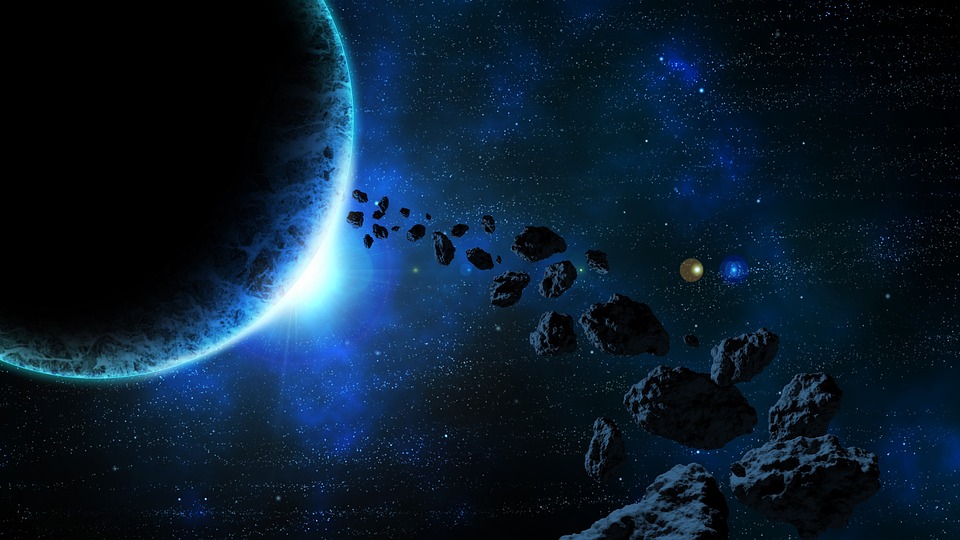Many asteroids have been spotted by space agencies all over the world passing by the Earth’s orbit. Now, experts have predicted what kind of natural disaster that could occur should a giant asteroid hit the planet.
A certain asteroid referred to as 101955 Bennu or 1999 RQ36 was classified by NASA as a “Potentially Hazardous Object” or PHO. The space rock is also the second-highest on the Palermo Technical Impact Hazard Scale. Many astronomers have already warned the agency to act or come up with a course of action should RQ36 make an unannounced visit to Earth as the impact from the asteroid would bring on natural disasters of a global scale.
A study conducted by Dr. Maria Eugenia Sansaturio, there is a chance of RQ36 striking Earth in the future. Back in 2010, Dr. Sansaturio explained to Universe Today that while the chances of an impact by RQ36 in a realistic setting are one in 1,000, what is concerning about the probability is more than half a chance of an impact might take place in the year 2182.
According to experts who explained the possible effects, the Earth would only lose some negligible mass, and thus no extreme damage would be caused. Still, there is some damage that will occur, but it will mostly happen where it decides to hit. The crater RQ36 would leave would measure up to 2.87 miles in diameter and 1,200 meters deep. The impact would at first, trigger an earthquake that is 6.7 in magnitude on the Richter scale.
If ever Bennu would hit the ocean, however, it would trigger a tsunami wave 92, which measures 183-feet, will be the effect and reach up to 31 miles from the impact site. People and animals may be safe if they are 300 miles from the shore, but there would still be some seismic activity occurring in the cities.
But asteroids like Bennu may not be the only thing we should be worried about. Metro reports that asteroids and comets coming from Jupiter may be hurtling towards the planet as well. According to Dr. Kevin Grazier, former NASA physicist, Jupiter may not be helpful in deflecting asteroids and comets after all.
Grazier ran simulations on this theory and in a paper he published back in 2007, it revealed that according to their simulations, Jupiter is responsible for most of the asteroids that have been approaching Earth. He advised that scientists should keep track of what is happening a little far away from the gas giant’s orbit.



 Neuralink Plans High-Volume Brain Implant Production and Fully Automated Surgery by 2026
Neuralink Plans High-Volume Brain Implant Production and Fully Automated Surgery by 2026  FDA Pilot Program Eases Rules for Nicotine Pouch Makers
FDA Pilot Program Eases Rules for Nicotine Pouch Makers  Senate Sets December 8 Vote on Trump’s NASA Nominee Jared Isaacman
Senate Sets December 8 Vote on Trump’s NASA Nominee Jared Isaacman  SpaceX’s Starship Completes 11th Test Flight, Paving Way for Moon and Mars Missions
SpaceX’s Starship Completes 11th Test Flight, Paving Way for Moon and Mars Missions  CDC Vaccine Review Sparks Controversy Over Thimerosal Study Citation
CDC Vaccine Review Sparks Controversy Over Thimerosal Study Citation  SpaceX Prioritizes Moon Mission Before Mars as Starship Development Accelerates
SpaceX Prioritizes Moon Mission Before Mars as Starship Development Accelerates  Astronomers have discovered another puzzling interstellar object − this third one is big, bright and fast
Astronomers have discovered another puzzling interstellar object − this third one is big, bright and fast  Neuren Pharmaceuticals Surges on U.S. Patent Win for Rare Disorder Drug
Neuren Pharmaceuticals Surges on U.S. Patent Win for Rare Disorder Drug  Is space worth the cost? Accounting experts say its value can’t be found in spreadsheets
Is space worth the cost? Accounting experts say its value can’t be found in spreadsheets  SpaceX Starship Explodes in Texas During Test, Citing Nitrogen Tank Failure
SpaceX Starship Explodes in Texas During Test, Citing Nitrogen Tank Failure  Trump and Merck KGaA Partner to Slash IVF Drug Costs and Expand Fertility Coverage
Trump and Merck KGaA Partner to Slash IVF Drug Costs and Expand Fertility Coverage 































